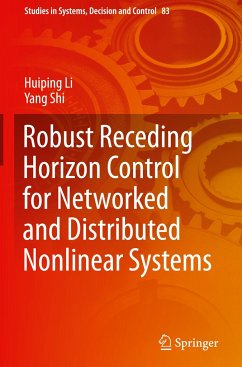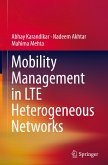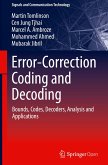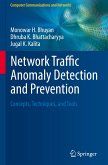This book offers a comprehensive, easy-to-understand overview of receding-horizon control for nonlinear networks. It presents novel general strategies that can simultaneously handle general nonlinear dynamics, system constraints, and disturbances arising in networked and large-scale systems and which can be widely applied. These receding-horizon-control-based strategies can achieve sub-optimal control performance while ensuring closed-loop stability: a feature attractive to engineers.
The authors address the problems of networked and distributed control step-by-step, gradually increasing the level of challenge presented. The book first introduces the state-feedback control problems of nonlinear networked systems and then studies output feedback control problems. For large-scale nonlinear systems, disturbance is considered first, then communication delay separately, and lastly the simultaneous combination of delays and disturbances. Each chapter of this easy-to-follow book notonly proposes and analyzes novel control algorithms and/or strategies, but also rigorously develops provably correct design conditions. It also provides concise, illustrative examples to demonstrate the implementation procedure, making it invaluable both for academic researchers and engineering practitioners.
The authors address the problems of networked and distributed control step-by-step, gradually increasing the level of challenge presented. The book first introduces the state-feedback control problems of nonlinear networked systems and then studies output feedback control problems. For large-scale nonlinear systems, disturbance is considered first, then communication delay separately, and lastly the simultaneous combination of delays and disturbances. Each chapter of this easy-to-follow book notonly proposes and analyzes novel control algorithms and/or strategies, but also rigorously develops provably correct design conditions. It also provides concise, illustrative examples to demonstrate the implementation procedure, making it invaluable both for academic researchers and engineering practitioners.
"The monograph offers both practical solutions and rigorous theoretical analysis with correct design conditions. The book presents the solutions step-by-step graduating from the state feedback control problems of nonlinear networked systems to output control problems. ... Readers are expected to be familiar with basic RHC as a necessary background. This book would be useful to advanced graduate students, academic researchers and applied mathematicians interested in this challenging area." (Lubomír Bakule, zbMath 1415.93004, 2019)








